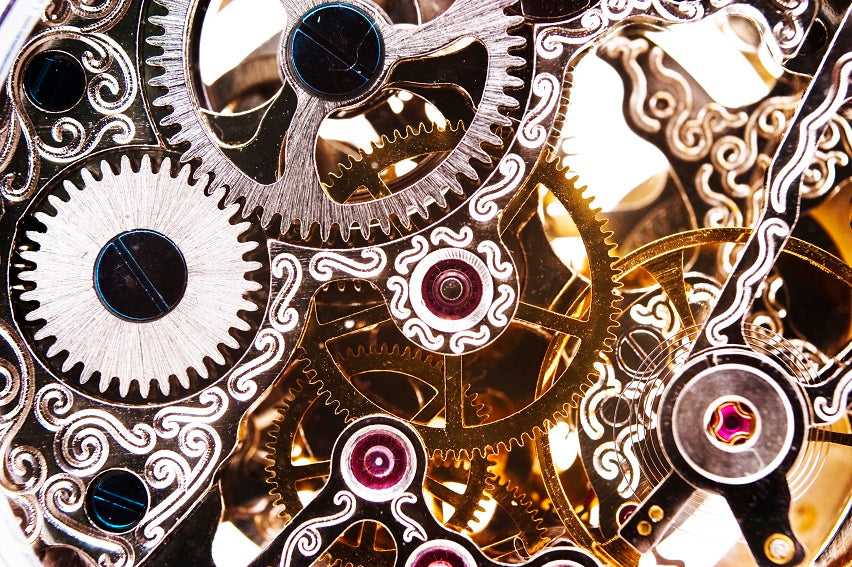Have you ever found yourself wondering what’s the difference between a mechanical and a quartz watch? With a similar appearance to the watch face, you’d be forgiven for thinking they were the same thing. The answer though, lies in the type of movement the watch has, and today we’re going to discuss the specific differences between them and how to pick the right one for you.
What is a Mechanical Watch?
A mechanical watch has a smooth sweeping seconds motion, a result of the second hand ticking multiple times per second. Because of this, mechanical watches also tend to have a higher level of quality and craftsmanship, compared with quartz watches. It is this reason that many luxury watch designers only craft watches with this movement type.
Consisting of many very small moving parts, mechanical watches must be wound up to work. Instead of using a battery to power itself, a mechanical watch uses the energy from a small spring. When wound up, the spring uses its stored energy, passing current through the gears and springs to power the watch. Due to the amount of labour required, they also come with a higher price tag. But they are also built to last, with many wonderful watch masterpieces being passed down between generations due to their longevity.
Many mechanical timepieces can last for 30-40 hours on a single wind. With no batteries required, they are also an eco-friendlier option. The downside is, they do require winding and if you forget to do this, your watch stops!
What is a Quartz Watch?
A quartz watch has a second hand which moves only once per second. Instead of a smooth movement like on a mechanical watch, the second hand does look like it is jumping and often will have an audible tick.
Keeping very accurate time, a quartz watch requires minimal maintenance and is battery operated. The battery sends an electrical current through a small quartz crystal, which then creates vibrations. These vibrations keep the movement going and makes the motor move the watch hand.
Quartz watches are generally preferred over mechanical watches for their accuracy and reliability. Even though it has a shorter lifespan than its mechanical counterpart, a quartz watch does have the advantage of being cheaper to manufacture and consequently purchase. Other than a battery change around every 12 months, a quartz watch requires little maintenance.
Choosing Between Watch Movements
So, how do you pick between a mechanical and quartz watch? Generally, your budget plays a large role in this decision, as well as the watch’s craftsmanship and brand name. But even if money was no option, not everyone would choose a mechanical watch. There’s something comforting about wearing a quartz watch, hearing the tick and knowing that your watch will not lose time! Our range of quartz watches are affordably priced, stylish and of an exceptionally high quality! We invite you to explore the Luxiani Stone, Virtues and Weekend Collections today.


